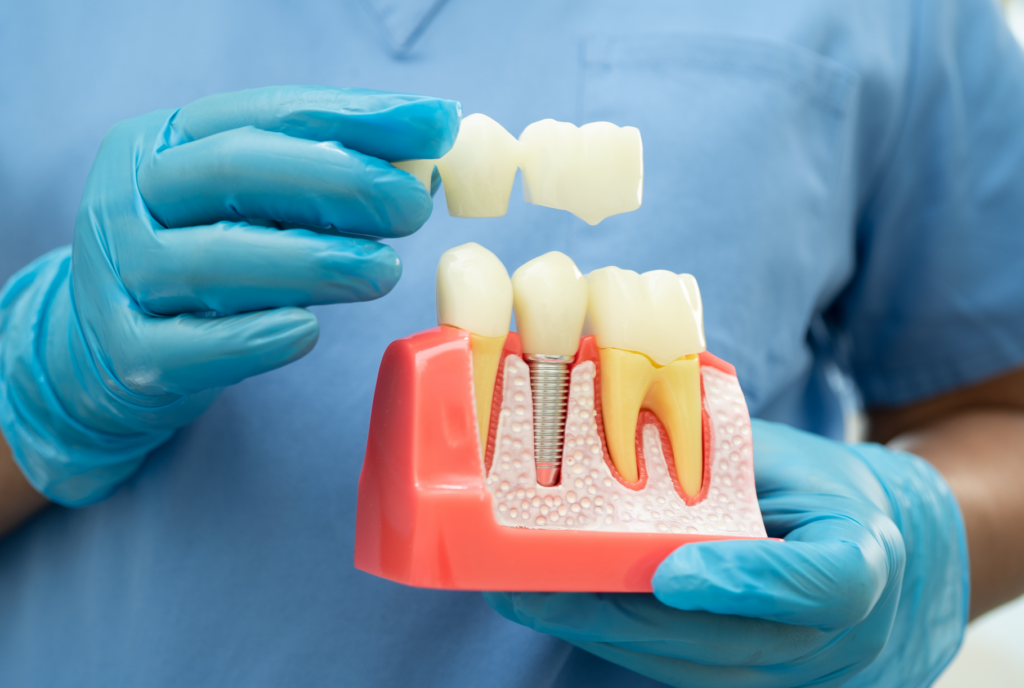Knowing about common dental care is important for a healthy smile. This guide explains general dental services, from regular check-ups to restorative procedures. Find out how you can take charge of your oral health with clear, straightforward advice designed to make dental visits less intimidating.

General dental services cover the basics of oral health, ranging from routine cleanings and exams to more involved procedures like fillings and crowns.
These services are the foundation of dental health. They provide preventive care that helps avoid more serious problems down the line.
This guide is designed to make the essentials of general dental services clear and accessible. More than just sharing facts, this is an invitation to take charge of oral health.
At their core, general dental services are about maintaining and improving oral health through preventive care and restorative treatments.
Routine check-ups and cleanings help keep teeth and gums healthy.
Restorative procedures like fillings, crowns, and root canals address damage and decay, preserving the function and appearance of teeth.
In essence, general dental services are what keep your smile healthy and your teeth functioning as they should, day in and day out.
Regular dental visits play a role in maintaining overall oral health, which in turn affects overall health.
By catching issues early—such as cavities, gum disease, or even early signs of oral cancer—your Richmond dentist can provide treatment before problems turn into something more serious.
Regular cleanings and exams also prevent the build-up of plaque and tartar, which can lead to tooth decay and gum disease if left untreated.
In this way, general dental services not only treat existing issues.
They also also prevent future problems, contributing to a healthier, happier life.

Routine check-ups and cleanings are at the heart of general dental services.
These check-ups are important for finding problems early on, before they turn into something bigger.
During a routine check-up, the dentist will perform a comprehensive examination of your mouth. They will check for signs of decay, gum disease, or other oral health issues.
X-rays might also be taken to get a closer look at areas that aren’t visible during the visual exam, such as between teeth or under the gums.
The cleaning process involves removing plaque and tartar that regular brushing and flossing can’t eliminate. This helps prevent cavities and gum disease.
Fillings are one of the most common restorative procedures performed as part of general dental services.
When a tooth has decayed, a filling is used to restore its structure and function, preventing further decay and damage.
The process involves removing the decayed portion of the tooth and filling the cavity with a material like composite resin. This material is designed to match the colour of the tooth and blend seamlessly with the surrounding enamel.
Fillings not only restore the tooth but also strengthen it. They prevent further decay and the need for more extensive treatments down the road.
Crowns and bridges are used when a tooth is too damaged for a filling to restore it or when a tooth is missing entirely.
A crown, often referred to as a “cap,” is placed over a damaged tooth to restore its shape, size, strength, and appearance.
Crowns, on the other hand, are typically made of porcelain or ceramic, which can be colour-matched to the surrounding teeth for a natural look.
A bridge, on the other hand, is used to replace one or more missing teeth. It consists of a false tooth (or teeth) that is anchored in place by crowns on the adjacent teeth.
Both crowns and bridges help restore the function and appearance of teeth. They help you chew and talk properly, and make your smile look natural again.

A root canal is a procedure used to save a tooth that is severely decayed or infected.
During the procedure, the dentist removes the damaged or infected pulp from inside the tooth, clean it up, and then fill it to stop it from getting infected again.on.
The tooth is then typically covered with a crown to protect it and restore its function.
Advances in dental technology have made root canals much more comfortable than they were in the past.
In most cases, a root canal is no more uncomfortable than getting a filling — and it can save a tooth that might otherwise need to be extracted.
You should aim to schedule a dental check-up every six months.
It might sound like a lot, but these check-ups are really important for keeping your teeth healthy. run.
However, if you notice something’s really wrong with your teeth, don’t wait to see the dentist.
If there’s persistent pain, bleeding gums, or sensitivity to hot or cold foods, these could be signs of underlying issues that need prompt attention.
Ignoring these symptoms can lead to more severe conditions, such as infections or tooth loss.
Knowing what to look out for, and taking action when something’s wrong, is just as necessary for keeping your teeth healthy.
When dental problems are caught early, treatments are often simpler, less invasive, and more affordable.
For instance, a small cavity detected during a routine check-up can be treated with a simple filling.
However, if left untreated, that cavity can grow and may eventually require more extensive treatment, such as a crown or even a root canal.
Preparing for a dental appointment can help make the experience smoother and more comfortable.
It’s a good idea to bring any relevant dental records or a list of medications currently being taken. These can help your dentist provide more personalised care.
It’s also helpful to prepare a list of questions or concerns to discuss with the dentist during the visit.
Arriving a few minutes early can allow time to complete any necessary paperwork and settle in before the appointment begins.
For those who feel anxious about visiting the dentist, taking a few deep breaths or practising relaxation techniques beforehand can help ease nerves. Being prepared ensures that the visit is as productive and stress-free as possible.
General dental services are important for maintaining a healthy smile. Routine check-ups, cleanings, fillings, crowns, and root canals all work together to keep your teeth and gums in top condition.
By scheduling regular dental visits and addressing any issues promptly, you can prevent small problems from becoming bigger ones.
These services are the foundation of long-term oral health, ensuring that your smile stays healthy and strong for years to come.
Remember staying on top of your dental visits is not just about maintaining oral health. It’s self-care.
Taking care of your smile is an investment in your overall well-being, making sure you look and feel your best for years to come.
Book your checkup & clean or a Free Smile Consultation at our Richmond clinic. Same-day appointments may be available.
Book Now
